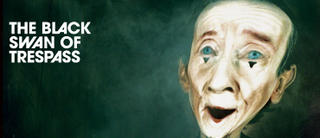Robyn Williams is what is often casually described as an icon of the Australian national radio broadcaster - the Australian Broadcasting Corporation. He has hosted the Science program on the ABC's Radio National for some 30 years. An erudite man who clearly loves his subject and feels the pain of the difficulties of Australian science.
In addition to the Science Show, Williams conducts a weekly short interview program entitled
In Conversation. In the most recent of these programs, he interviews the current Chair of the
CSIRO,
Catherine Livingstone. Livingstone is another example of a group of Australian "managerialists" who are essentially accountants who view the world and all its complexities through the narrow eyes of accounting, business and the market.
Their language is dominated by the jargon of modern managerialism:
The central doctrine of managerialism is that the differences between such organisations as, for example, a university and a motor-vehicle company, are less important than the similarities, and that the performance of all organisations can be optimised by the application of generic management skills and theory. It follows that the crucial element of institutional reform is the removal of obstacles to ‘the right to manage’.
The rise of managerialism has gone hand in hand with that of the radical program of market-oriented reforms variously referred to as Thatcherism, economic rationalism and neoliberalism. (Despite very different histories, all these terms are now generally used in a pejorative sense). Managerialism may appear inconsistent with traditional free-market thinking in which the ideal form of organisation is that of competitive markets supplied by small firms, in which the manager is also the owner. However, managerialism is entirely consistent with the dominant strand in the neoliberal approach to public policy, which takes the corporation, rather than the small owner-managed firm, as the model for all forms of economic and social organisation.
So here is Robyn Williams attempting to ask this woman about what is currently happening within the CSIRO where the language, behaviour and effects of managerialism is now having its destructive effect.
But Robyn's frustration about the application of this psuedo-science of managerialism to the CSIRO and its proud history of the achievements and application of Australian science was all too obvious. This was not one of his better performances.
People like Livingstone answer questions about managerialism by referring to its necessity. Her responses, like so many of her contemporaries, suggest that there can only be one way foward - and guess what that is.
We need effective leadership in all Australian organisations. The mistake being made is that leadership can only come through the mantra of the market. We need leaders to emerge from somewhere else other than the Macquarie Bank.
MelbourneCSIROABCscienceMelbourneMeanderings


